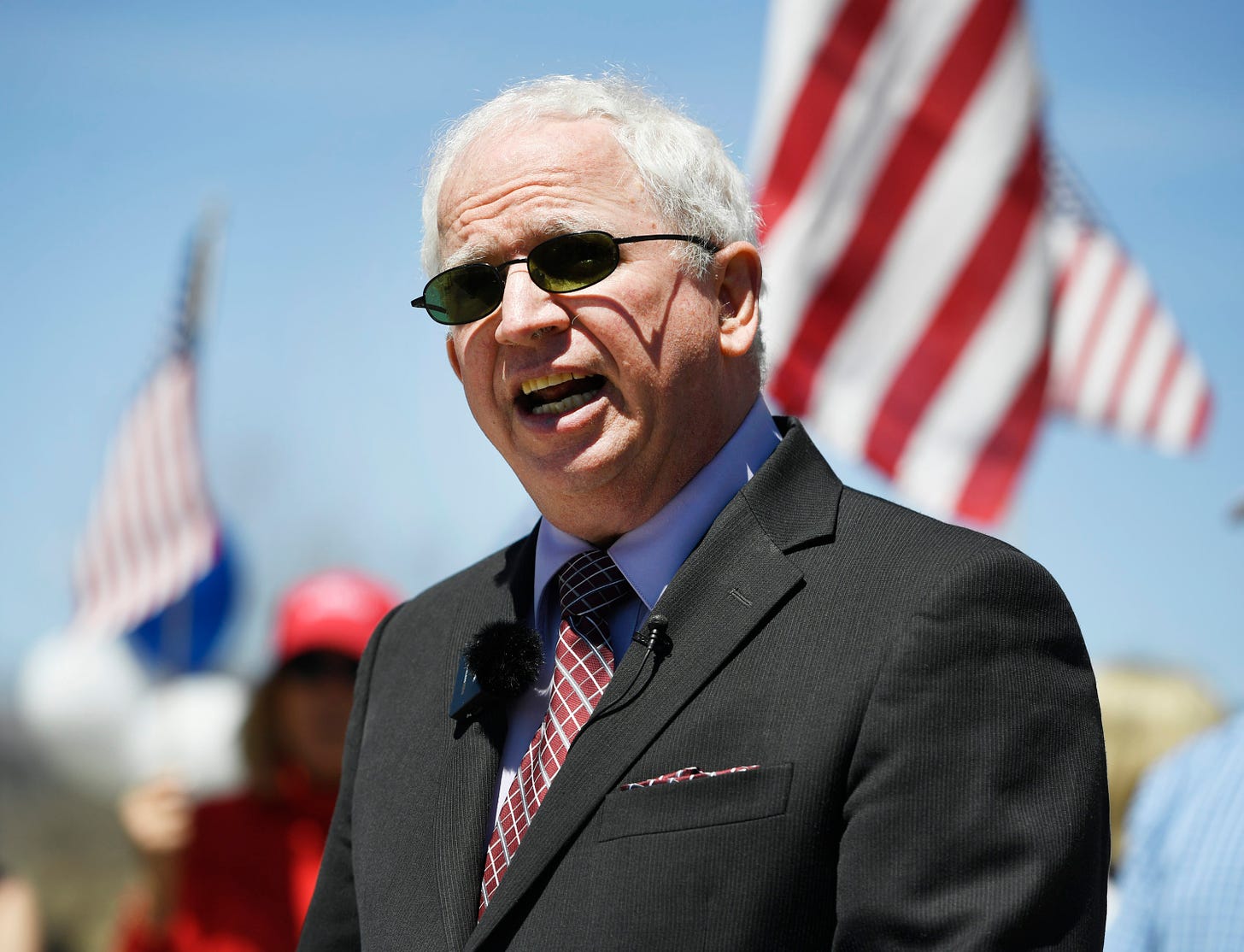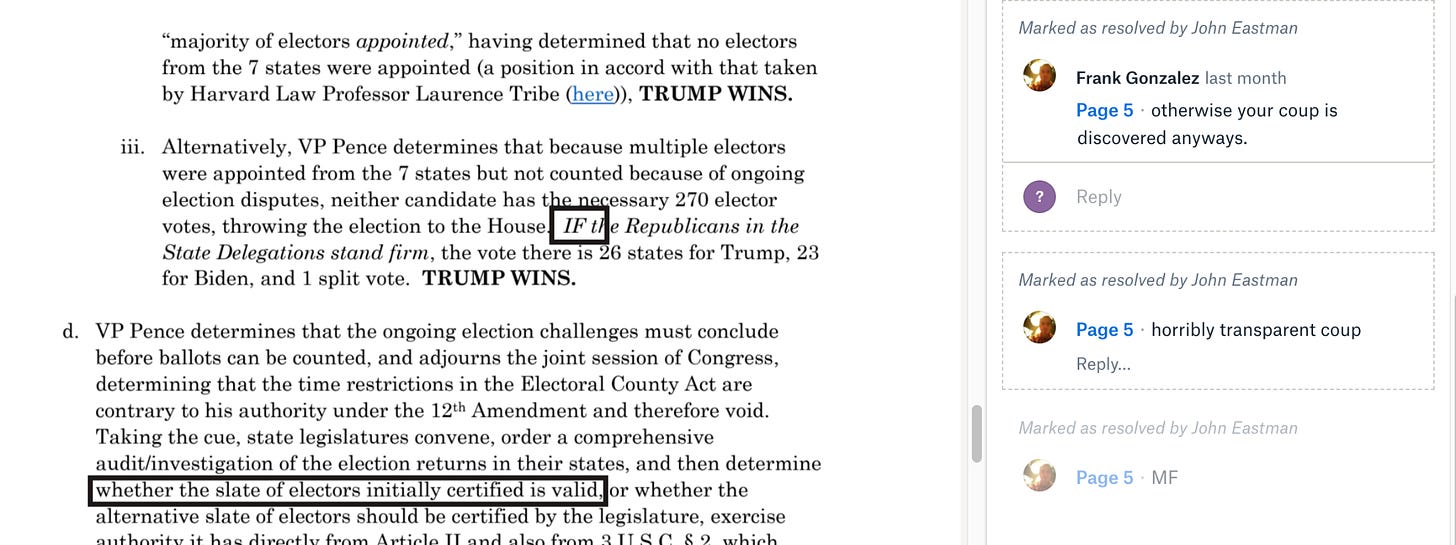
John Eastman Is Not Good With Computers
The legal scholar who advised Trump on his Jan. 6 strategy is making a lot of mistakes.

John Eastman is having a rough go of it. The 61-year-old attorney, founding director of the Claremont Institute's Center for Constitutional Jurisprudence, and a (former) law professor at Chapman University, continues to be in the news for his efforts leading up to the events of January 6. During the fallout from the above, Eastman has played a game of digital ping-pong trying to . . . contextualize . . . his role regarding the memos he wrote trying to help Republicans overturn a legitimate presidential election. He wants people to believe that he wasn’t providing directions so much as Just Asking Questions. Which is fine. People can come to their own conclusions. But one of the sideshows to this effort has been discovering that Eastman is—as you might expect for a sixtysomething (former) professor ensconced in the protective bubble of Conservatism, Inc.—not so good with the computers. First there was this tweet replying to Christian Vanderbrouk, encouraging people to read the “final” version of the memo:
At least get the final version of the memo, which Woodward and Costa had but chose not to acknowledge. It is at https://t.co/Vvp8PlKf2t
— John Eastman (@DrJohnEastman) September 21, 2021
In his tweet, Eastman linked to a Dropbox version of this “final” draft. But he forgot to disable suggestions on Dropbox, and one person who had access to this public document decided to weigh in, adding comments labeling Eastman’s strategy a “coup”:

Eastman “resolved” these comments by clicking “resolve,” but they did not go away. Then, as the Washington Post reports, Eastman tried to edit his own Wikipedia page, which is a huge no-no:
On Jan. 9, Eastman indeed returned to Wikipedia with his list of proposed fixes and the sources for those claims. Experienced editors evaluated his suggestions. They approved some uncontroversial requests—a better photo of him was uploaded, too—but when he suggested rewriting the description of his meeting with Trump and Vice President Mike Pence in the lead-up to the certification vote in Congress, an editor using the name SundayClose rendered a verdict, “Not Done,” trusting an account in the New York Times over Eastman’s own testimony. “Seriously?,” Eastman replied. “The youtube source I cited was the actual speech in which I specifically stated what was being asked of the Vice President. How is the actual statement not a more reliable source than an anonymous source cited by the NY Times?” SundayClose answered, exasperated: “Yes seriously. This is Wikipedia, not your personal soapbox,” adding, for good measure, “Just because you say it in a speech doesn’t make it true.”
In a way, America is lucky that folks such as Eastman and Rudy Giuliani are about as skilled in the practice of law as they are with their use of modern technologies, where they are firmly in the Alexa Silver demographic. But their failures should also be a warning. History, as the saying goes, often repeats itself—first as tragedy, then as farce. Yet nowhere is it written that the order can’t be reversed.










